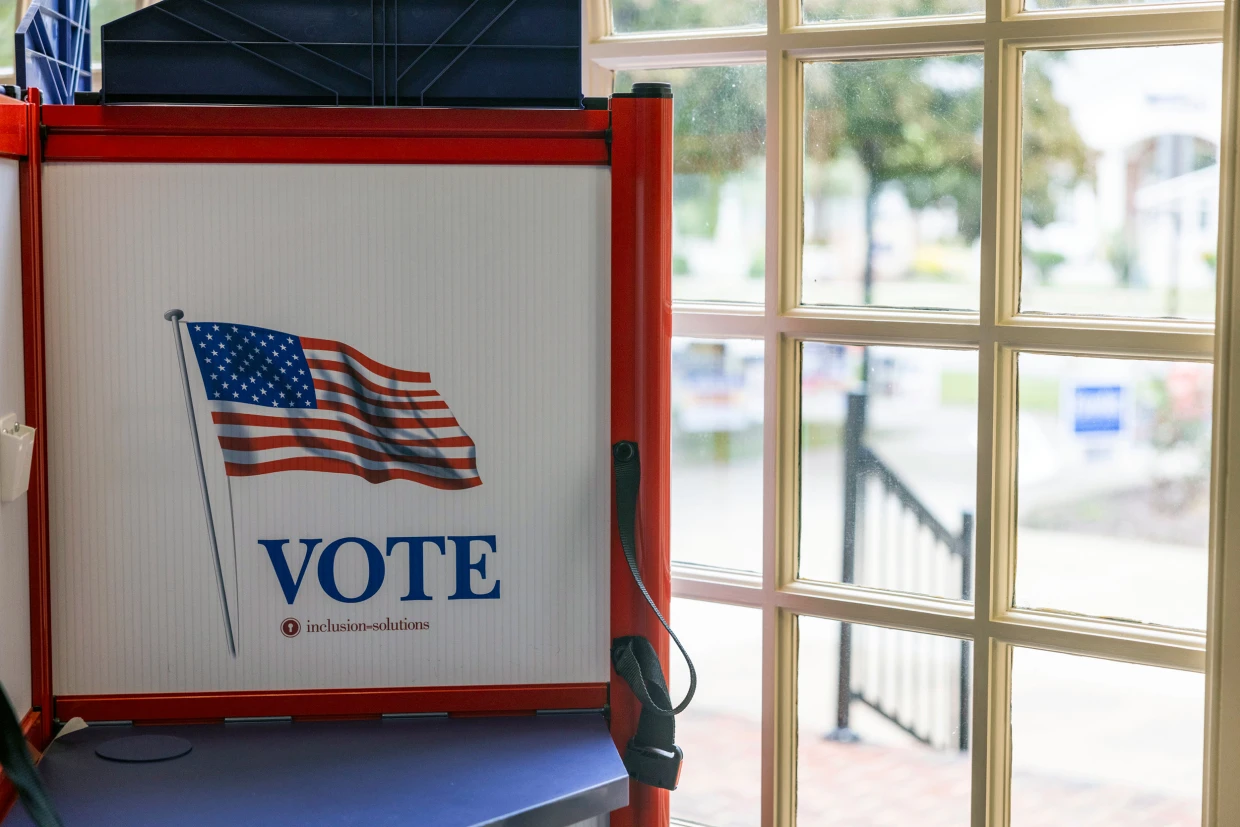Democrats announced Tuesday that they are spending at least $35 million this election cycle to “persuade and mobilize” Latino, Black, Asian American, Pacific Islander and Native Hawaiian voters to help the party win control of the U.S. House in November.
The Democratic Congressional Campaign Committee told NBC News in advance of the announcement that the planned 2024 spending would surpass the $30 million spent on those groups of voters in the 2022 midterm elections and other previous cycles.
vThe DCCC, which is tasked with financing and helping Democrats win House elections, has dubbed the effort “Power the People” (with Power standing for persuade, organize, welcome, educate and reach).
The investment and work associated with the program “honors our commitment to the multiethnic coalition that our fragile democracy depends on,” Missayr Boker, DCCC deputy executive director for campaigns, said in a news release. “While extremist Republicans continue to lie, cheat and suppress the vote of people of color in order to win elections, Democrats understand that democracy is strengthened when everyone’s voice is heard.”
Democrats have long been able to count on winning larger percentages of Latino, Black, Asian American, Pacific Islander and Native Hawaiian voters. But the GOP has sliced into those voter shares in recent elections, largely in Latino and Asian American, Pacific Islander and Native Hawaiian communities. Some recent polls have also found waning enthusiasm among Black voters for President Joe Biden’s campaign.
“It certainly is encouraging that they are making the hard commitment now,” said Matt Angle, a Democratic strategist in Texas, where Hispanics now outnumber white residents.
“You can’t expect to realize the benefit of your base voters unless you invest in them — you have to earn that over and over again,” he said.
The DCCC said some of the money has already been spent, including for the first time to research and survey where voters are going to get their information. Latinos spend a lot of time on YouTube, for example, said José Muñoz, a DCCC spokesman.
“Obviously we are going to do smart, targeted outreach to understand nuances not just between groups, but between different regions and localized by district. For example, what may speak to and resonate with Latinos in Florida is different from those in the Central Valley” of California, Muñoz said.
According to Muñoz, some congressional districts have more than one sizable population group the party is aiming to mobilize.
In Nevada’s 1st Congressional District, which includes Las Vegas, for example, 30% of voters are Hispanic, 10% are Black and 9% are Asian American Pacific Islanders (AAPI).
In California’s 45th Congressional District, which includes Irvine and Mission Viejo, 39% of the population is AAPI and 31% is Latino, according to analysis by Census Reporter.
Other spending areas will include:
- Conducting in-depth research and polling within the different communities to understand voters’ priorities.
- Creating media that reaches people in their language of choice — including Spanglish — and for different social platforms.
- Organizing with local leaders and community members to register, rally and connect voters and build connections between local and national organizations.
- Providing information on voting laws, options and any changes that may make voting harder, as well as building up trust in voting by mail in places where it’s offered.
- Tracking and countering disinformation spread through social and traditional media and aimed at particular communities. This work will include “In It Together,” an expansion of the “Juntos” (Together) tool that Democrats used in the last last election cycle to counter false and misleading information. “In It Together” will provide shareable content and resources that will be available in English, Hindi, Korean, Mandarin, Spanish, Tagalog and Vietnamese.
“The historic investments from the DCCC are a commitment to expand our coalition,” Rep. Judy Chu, D-Calif., said in a statement. Chu chairs the Congressional Asian Pacific American Caucus.
Rep. Robert Garcia, D-Calif., the first LGBTQ immigrant elected to Congress, stated he was proud “to be part of a party that understands the importance of engaging folks from all backgrounds.”
Rep. Robin Kelly, D-Ill., a DCCC recruitment vice chair and a member of the Congressional Black Caucus, said that the “holistic approach to reach communities of color through voter protection and education, paid media, and organizing demonstrates a commitment to meeting voters wherever they are.”
Angle said the DCCC faces hard decisions on how to divide up its spending among groups and what’s the best use of the next available dollar. Not everyone is going to agree with the decisions, but making a firm decision early on this level of spending is a positive development, he said.
“It’s acknowledging there’s almost no competitive district in the country that doesn’t require a coalition to be built in order for a Democrat to win,” he said.

